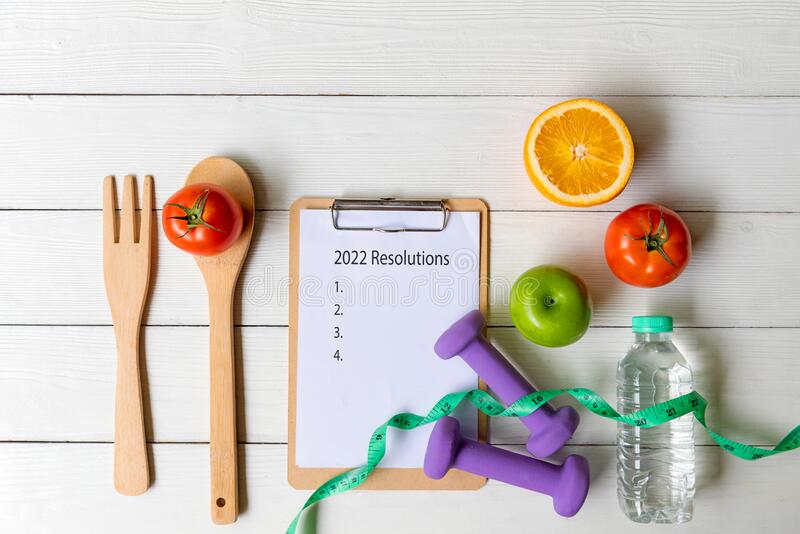
Before you can start your nutrition program, it is important to learn how to read a nutrition label. You might have heard about the Choose My Plate program. It has helped millions of people find the right mix of food groups. However, many of us still struggle to find a balanced meal. Here are some ways to make your meals healthier and more balanced. If you follow this simple guide, it will be easy to eat what your body needs and feel great.
The basic principles of nutrition planning are the same, but they all use different approaches to achieve their goals. Some planners focus on macro-level economics while others are more focused on micro-level economics. Some planners are focused on a specific sector, like agriculture. A third group places emphasis on organizational factors and uses statistical analytical methods. Other approaches are more intuitive and use a combination of all three. A fourth group stresses organizational factors. Regardless of which approach you choose, it's important to understand the differences between these two groups and how they differ.

Meal planning is a great way to achieve your nutritional goals and prevent chronic diseases. Meal planning lets you enjoy many different foods, and can also help you increase your vegetable intake. Regardless of your goals, this process is a fun and effective way to ensure you're getting the right nutrients. You've found the right place if you are looking for a nutritional plan. Below are some tips to help you get started.
You can save time and money by planning your meals. Using meal planning can eliminate the need to run to the grocery store last-minute. You can also use it to manage your finances and portion sizes. It will also lower your chances of overeating. Consistency is the key to success. It's not easy, but it's well worth the effort. It'll pay off long term.
Meal planning is an important component of a weight loss program. It can help to eat healthier and reduce unhealthy food choices. It can help you lose weight and improve your health. A plan can help you stay on the right track to your goals. When you are clear about what to eat, it is easier to make informed decisions. By creating a nutrition plan, you'll be sure to eat healthier and avoid unhealthy foods.

Meal preparation is an excellent way to eat healthy and stick to your weight-loss plan. It's a great way to save time and stop eating unhealthy foods when you feel hungry. This will help you stay on track and avoid unhealthy habits and maintain a healthy weight. Balanced eating will help you reach your weight loss goals. You will be able to resist the temptation of eating unhealthy foods or saturated fats.
FAQ
What are the best foods to avoid when trying weight loss?
Avoid trans fats. Trans fats can raise LDL (the unhealthy) cholesterol levels while lowering HDL levels (the good).
Trans fats can also be found in deep-fried food, fast food, packaged bakery goods, snack cakes, as well as other processed foods.
These unhealthy fats also contribute to inflammation, leading ultimately to heart disease or diabetes.
Foods containing artificial sweeteners should also be avoided. Artificial sweeteners may increase your chance of getting cancer.
These chemicals are found in many products, including soft drinks, candy bars, chewing gum, as well as candy bars. They appear in many other foods, including meat, poultry, fish, and eggs.
Artificial sweeteners include saccharin and sorbitol.
The American Heart Association recommends that these chemicals be avoided as they can damage DNA.
What's a good workout plan for 7 days?
A seven-day exercise plan should include cardiovascular training (running/biking/swimming), strength exercises (using weight machines, free weights) and one flexibility/core program (yoga or Pilates). Each activity must be completed at least once per week. The total time for each session should not exceed 45 minutes.
Cardiovascular Exercise: Running/Biking/Swimming
Aim to do at least 60 minutes per week of cardio. You can aim for 75 minutes a week for best results. Cardio exercise can improve blood flow and stimulate muscle development.
Strength Training
While cardio exercises target the heart and lungs, strength training targets the muscles and bones. Strength training helps you burn calories even while resting.
Flexibility & Core Workouts
Core and flexibility exercises are great ways of strengthening your whole body. Both yoga as well as Pilates are great choices.
Eggs are good for us.
All nutrients are contained in the egg. It supports strong bones, healthy heart, lungs, and stable blood sugar.
Eggs are a great source of protein, vitamins A and B12, D. E. K, calcium, magnesium, selenium and riboflavin.
The cholesterol content of egg yolks is high. However, it does not contain saturated fat. Eggs have less saturated oil than many other foods.
They are also low in calories and sodium. You can make them in any way you like. You can fry, poach, scramble, boil, hard-boil, and bake them.
They are delicious and very easy to prepare.
Aim to eat two whole eggs per week. You should eat eggs if you are allergic to them.
Essential nutrients are found in eggs. Add eggs to your diet today.
Do Men Need A Gym Membership?
For men, a gym membership is not required. A gym membership will make your money more valuable.
Many gyms offer free trial memberships so you can try the facilities out before paying for anything.
The gym is free to use whenever you wish, and there are no fees. You can cancel or modify your membership anytime you feel you don't like it.
How often should I exercise each week?
It all depends on how much time and what kind of exercise you like. You should do moderate-intensity aerobic exercise three to five days per week. It's important that you don't overdo it. Consistent exercise is essential to achieving maximum benefit from your workouts.
Which exercises work best for you?
It all depends on what type of fitness goals you have. Some people prefer endurance sports like swimming, cycling, or running. Others like lifting weights or using resistance band. There are many exercise programs on the market today. Find the best option for you.
Which dietary supplements are good for weight loss.
Losing weight requires both diet and exercise. Some people find certain supplements helpful.
Studies have shown that omega-3 fatty acid may be beneficial in weight loss. Omega-3s, essential fats, are critical for brain function and cell membrane health. They're found in seafood like salmon, tuna, shrimp, and cod liver oil.
Other research suggests that green tea might be beneficial for weight loss. Green tea has catechins, which are antioxidants that can help increase metabolic rate and encourage weight reduction.
Statistics
- Cardmembers earn 5% Back at Amazon.com with a Prime Credit Card. (amazon.com)
- According to the American Academy of Dermatology (AAD), men over 50 are at a heightened risk of developing it. (healthline.com)
- The PRS enabled risk stratification for overall prostate cancer and lethal disease with a four-fold difference between men in the highest and lowest quartiles (HR, 4.32; 95% confidence interval [CI], 3.16-5.89). (pubmed.ncbi.nlm.nih.gov)
- By John Thompson Take a whopping 38% off a set of PowerBlock Pros. (menshealth.com)
- Are You One of the 20% of Guys (mh.co.za)
External Links
How To
How can I burn fat while exercising?
Exercise reduces calories by increasing metabolism, and oxygen consumption.
You'll lose weight safely if you exercise at moderate intensity.
These are the top tips for burning fat while you exercise.
-
Cardio exercises like walking, running (or jogging), swimming, cycling, running, and/or elliptical training are all good options.
-
You can exercise for 30 mins three times per week.
-
You can lose weight by adding strength training to the routine.
-
Avoid intense workouts. You can build muscle without having to lose muscle tissue.
-
Hydrate well during exercise. Water helps flush out toxins and keep your body properly hydrated.
-
After working out, drink low-fat protein shakes. Protein shakes boost energy and repair muscle tissue.
-
You can eat smaller meals throughout the day so that you don't feel hungry in between meals.
-
Don't skip breakfast! Skipping breakfast can leave you feeling tired and sluggish.
-
Take care of your mental health. Stressful situations can slow down metabolism.
-
Keep a positive attitude. Studies show that people who believe they are overweight gain more weight then those who think they are attractive.
-
Get enough sleep. Insufficient sleep can make it more difficult to lose weight.
-
Active living is key. Get up every hour and get moving.
-
Maintain a healthy diet. A healthy diet will help you feel fuller for longer.
-
Relaxation is possible by finding ways to relax. A tense mind doesn't allow your body to release stress hormones that break down muscle tissue.
A balanced diet includes all essential nutrients needed for growth and development.
Eat six small meals each day instead of three large ones. This gives your body time and energy to process the food.
Calcium is required to support strong bones. Calcium can be found in dairy products such as yogurt, fortified soybean beverages, orange juice, cereals, bread, and cereals.
Calcium is found in leafy green vegetables and beans, tofu as well as nuts, seeds, cheese, and seeds.
Vitamin D is required by the body to absorb calcium. Vitamin D can also be found in some fortified foods such as eggs, fish, and yolk.
Vitamin E is important for skin health. It's found in vegetable oils, wheat germ oil, peanuts, almonds, sunflower seeds, and corn.
Your body needs zinc for normal immunity function and wound healing. Zinc can also be found in legumes, oysters, meats and whole grains.
Zinc deficiency can cause fatigue and loss of appetite. It can also lead to depression and impaired immunity.
Consuming too much sugar can cause insulin resistance. This causes an increase in blood glucose levels. Insulin resistance leads directly to weight gain.
Insulin resistance occurs when the bloodstream is full of free radicals. Free radicals are molecules containing unpaired electrons which cause damage to cells membranes.
The main sources of free radicals are food additives.
Free radical damage can cause cancer, heart disease and diabetes, as well as arthritis, asthma, and other diseases.
Antioxidants are essential for preventing free radical damage. Antioxidants protect against oxidative damage.
Antioxidant vitamins include Vitamin C (found in citrus fruits), beta carotene (found in carrots, sweet potatoes, spinach, broccoli, cantaloupe, apricots, squash, mangoes, peaches, peppers, tomatoes, cabbage, cauliflower, kale, Brussels sprouts, collard greens, watermelon, and strawberries), and Vitamin E (found in nuts, olive oil, avocados, and eggs).
Selenium, copper and manganese are all antioxidant nutrients.
Selenium protects cells from free radical damage. Selenium is also found in Brazil nuts.
Copper protects your eyes, brain, eyes and red blood cell. Copper is also found in poultry, meat, and organs.
Manganese is essential for bone structure. Manganese can also be found in oatmeal, brown rice, spinach and bananas.
Zinc is necessary for average growth, reproduction, and wound healing. Zn can be found in lean cuts, white fish, poultry, eggs, and other foods.